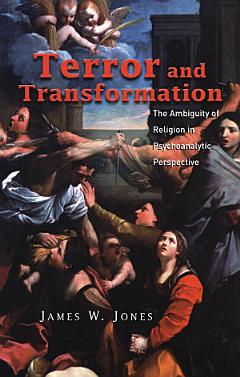The Ambiguity of Religion in Psychoanalytic Perspective
By:
James W. Jones
At the heart of living religion is the idealisation of everyday objects. Such idealisations provide much of the transforming power of religious experience, which is one of the positive contributions of religion to the psychological life. However, idealisation can also lead to religious fanaticism which can be very destructive. Drawing on the work of various contemporary relational theorists within psychoanalysis, this book develops a psychoanalytically informed theory of the transforming and terror-producing effects of religious experience. It discusses the question of whether or not, if idealisation is the cause of many of the destructive acts done in the name of religion, there can be vital religion without idealisation.
This is the first book to address the nature of religion and its capacity to sponsor both terrorism and transformation in terms of contemporary relational psychoanalytic theory. It will be invaluable to students and practitioners of psychoanalysis, psychotherapy, psychology and religious studies, and to others interested in the role of religion in the lives of individuals and societies.

